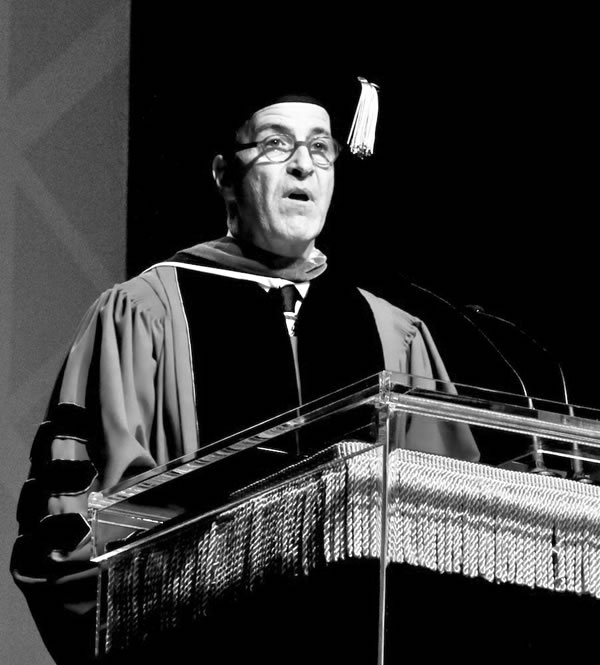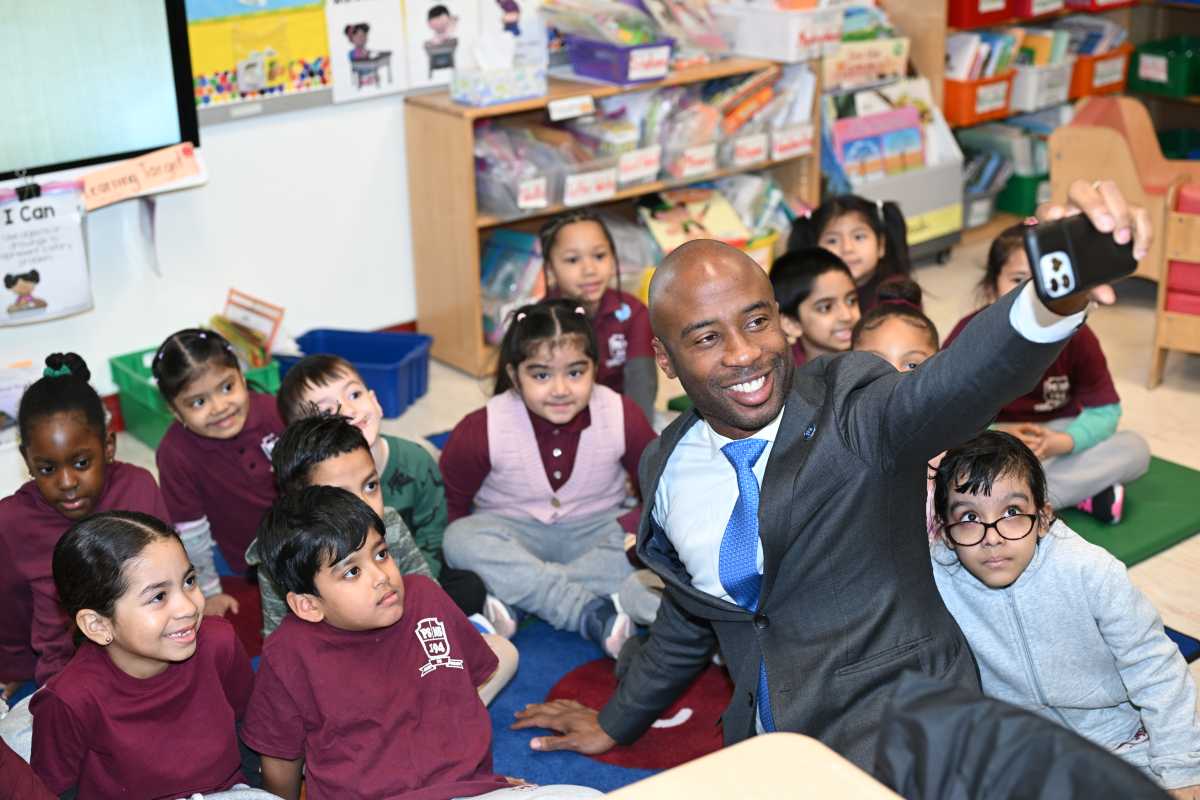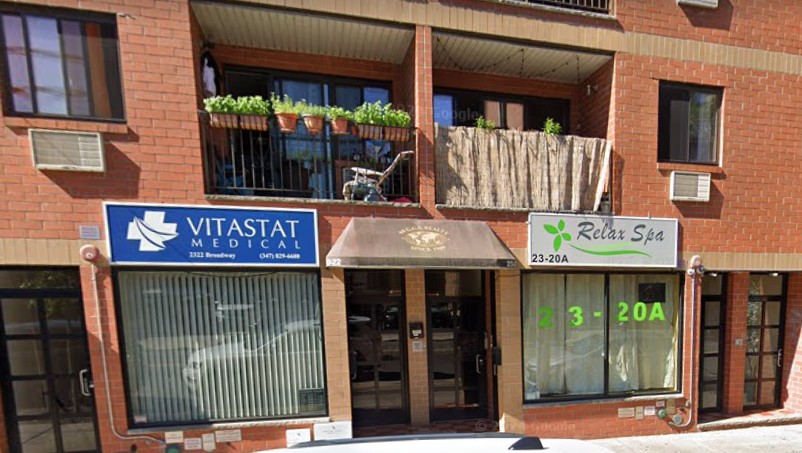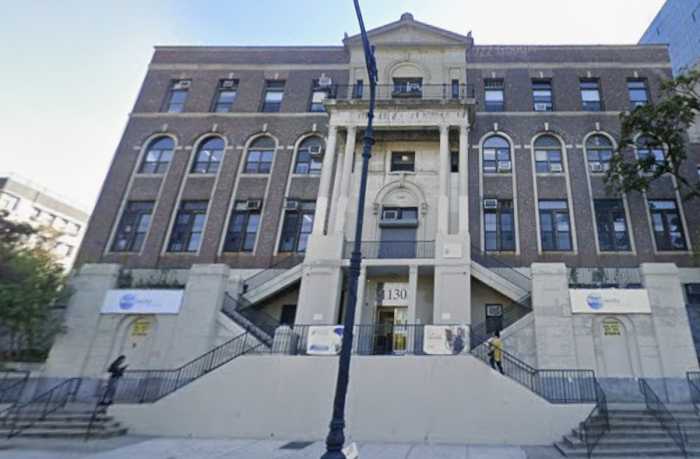By Aidan Gardiner
In a meeting Monday night with the broader Cooper Union community, Mark Epstein, the chairperson of the school’s board of trustees, said that although no final decision has been made, lackluster fundraising and the economic downturn that began in 2008 may push the school to reverse its century-old practice and start charging students tuition.
Then a young man in the back of the Cooper Union Great Hall stood up.
“The entire student body is going to walk out if that happens,” he said.
The hall erupted in applause. At several other points throughout the meeting, students booed and hissed the trustee chairperson. But the young man’s remark was the most direct reference that night to the internal conflict that may lie ahead for the college.
Cooper Union is in the middle of an existential crisis. School officials are weighing a financial decision that could dramatically transform the college’s culture. Alumni, faculty and students are still struggling to understand the recent deficit revelations while fighting to preserve what they love about their school.
On Oct. 31, The New York Times and the Wall Street Journal both reported that Cooper Union was running a $16.5 million budget deficit and that officials were now seriously considering charging tuition as a way to generate enough revenue to cover increasing costs.
Up till then, most in the Cooper community believed the school to be on solid ground, and were shocked to hear otherwise. It remains unclear why this information wasn’t known for so long. When asked at the Monday meeting, Epstein did little to explain this and simply said that the information had been publicly available through the tax forms filed with the state’s attorney general every year.
According to Epstein, any tuition policy wouldn’t be implemented until 2013, if at all, and wouldn’t affect any current students. He said the trustees have yet to determine how many students would be charged to attend and how much.
Currently, all Cooper Union students are given scholarships of $38,500 to attend, and Epstein indicated that the school may continue offering such financial assistance to those prospective students who need it.
Critics of the proposed tuition policy haven’t yet mounted a serious organizing effort against the issue. Students and alumni have crafted several online forums on Facebook and other sites to exchange information and analysis and rally support. But many are still simply trying to comprehend the situation and don’t think the time has yet come for more drastic protests — like building occupations — as seen at other neighboring universities in recent years.
“Nothing has happened yet and to mount this kind of social protest is a form of acceptance that it will — that tuition is a foregone conclusion, which it isn’t,” architecture professor Lebbeus Woods posted on Free as Air and Water, a new blog where alumni, faculty and students discuss Cooper Union’s situation. “I think we should concentrate on making our position known within the school — use the banner and mass gathering there!”
Last Friday, students and faculty staged a small walkout, leaving the school’s flagship Foundation Building on Astor Place to hold class on the street. Students made signs and did other work, but it was hardly a substantial protest.
However, students and faculty are likely to take more dramatic action if the board of trustees moves forward with a tuition policy.
Tommy Coleman, an alumnus who now works in Cooper Union’s admissions office and production labs, said that he would likely join a large-scale walkout if the trustees move forward. In his view, a tuition model compromises the student and faculty relationships that are vital to Cooper Union’s educational culture in which both parties teach and learn from each other.
“From the first day, you’re told, ‘You’re here to ignite someone else’s education,’” Coleman said. “It wouldn’t be Cooper Union.”
Critics argue that if a tuition policy is implemented, then some students will simply attend the school because they can pay and not because they have the competency or even desire to do so.
Epstein said that he is committed to preserving the integrity of Cooper Union, reminding the audience at Monday’s event that he is an alumnus of the school, as well, and has worked on its behalf for many years.
While many in the audience spoke about Cooper Union in moral terms, Epstein tried to lay out the intricacies of the school’s financial picture and their implications for the college’s future.
“We’re not in a major crisis right now, but if we don’t make any significant changes now, then we will be,” Epstein said.
Much of his talk focused on clarifying facts about Cooper Union’s predicament, countering any misconceptions that he could, and addressing alternative revenue proposals to a tuition model.
Among those other revenue generating ideas he addressed were obtaining more grant money for research, making more patents and offering online classes, among others.
The issue of alumni support has become a contentious issue. Epstein said that alumni have not done enough to bolster their former school. Many in the audience retorted that the fault rested more firmly at the feet of the trustees, but Epstein disagreed.
“Only 20 percent of alumni donate and that’s a failed investment,” Epstein said. “Four out of five students in this room will become part of the problem when they graduate.”
At one point later on, he added, “I would blame the lackluster performance of alumni —” at which the audience cut him off with booing and hissing in response.
Alumni play an integral role at the school and many students feel fiercely loyal to them. Some alumni in the audience told Epstein that they were offended that he would suggest they were not doing enough.
“Being thrown on the sacrificial slab like that is really hard,” Coleman said afterward. “It pains me to hear him say it’s the alumni’s fault.”
It remains unclear what the next steps will be for Cooper Union. Its board of trustees has added another meeting to their schedule to better grapple with the situation.
The administration has convened a special task force to investigate alternative revenue models; many students are devoting whatever little free time they have to investigating the same goals.
According to Epstein, the school needs to focus on growing revenue because it has already cut costs everywhere it can.
“We don’t need to tighten our belts anymore,” Epstein said. “We need better-fitting pants.”






































